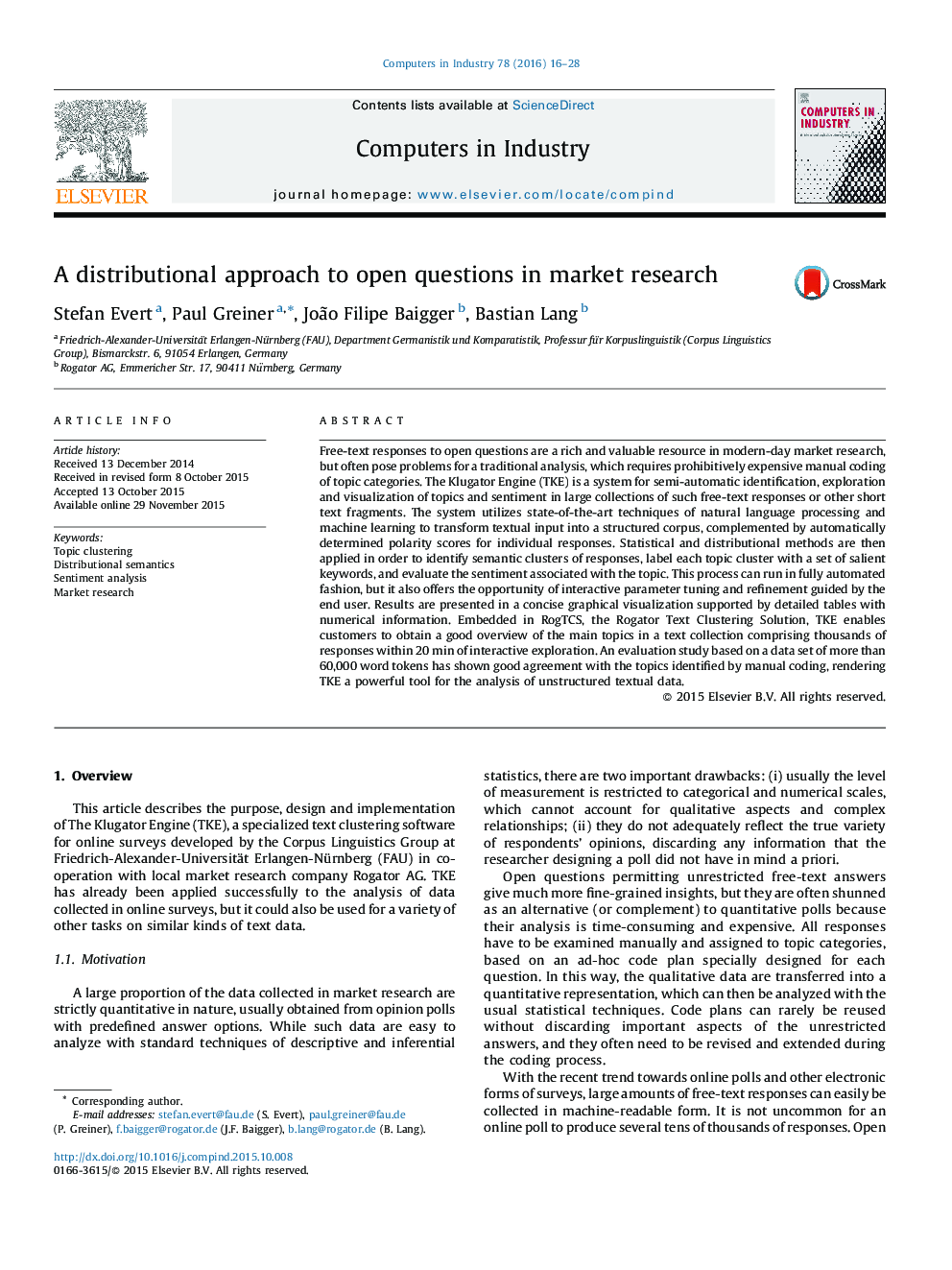| Article ID | Journal | Published Year | Pages | File Type |
|---|---|---|---|---|
| 508850 | Computers in Industry | 2016 | 13 Pages |
•Semi-automatic analysis and visualization of topics and sentiment in text.•State-of-the-art methodology from topic clustering, distributional semantics and sentiment analysis.•Developed and adjusted for (not necessarily limited to) the means of market research.
Free-text responses to open questions are a rich and valuable resource in modern-day market research, but often pose problems for a traditional analysis, which requires prohibitively expensive manual coding of topic categories. The Klugator Engine (TKE) is a system for semi-automatic identification, exploration and visualization of topics and sentiment in large collections of such free-text responses or other short text fragments. The system utilizes state-of-the-art techniques of natural language processing and machine learning to transform textual input into a structured corpus, complemented by automatically determined polarity scores for individual responses. Statistical and distributional methods are then applied in order to identify semantic clusters of responses, label each topic cluster with a set of salient keywords, and evaluate the sentiment associated with the topic. This process can run in fully automated fashion, but it also offers the opportunity of interactive parameter tuning and refinement guided by the end user. Results are presented in a concise graphical visualization supported by detailed tables with numerical information. Embedded in RogTCS, the Rogator Text Clustering Solution, TKE enables customers to obtain a good overview of the main topics in a text collection comprising thousands of responses within 20 min of interactive exploration. An evaluation study based on a data set of more than 60,000 word tokens has shown good agreement with the topics identified by manual coding, rendering TKE a powerful tool for the analysis of unstructured textual data.
